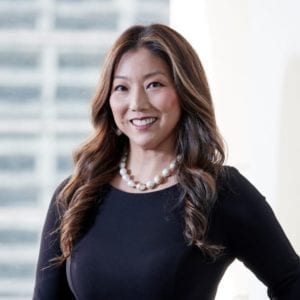You would think matching patients with the best available provider would be easy with the data and intelligent algorithms we have at our collective disposal. It isn’t. For one, the data required from both patients and providers is siloed and not readily accessible. In addition, there is a lack of momentum by insurance companies to innovate in this area.
One company is seeking to change this in Southeast Asia – DocDoc.
Co-founded by the husband and wife duo, Grace Park and Cole Sirucek, DocDoc is doing for patients in Asia what Armada Health is doing in the US – use science to better match patients to providers with superior outcomes at lower cost.
 For Park and Sirucek, their journey started when their daughter (Rand) was just 3 months old. They brought her to the local hospital in Singapore when they noticed she looked jaundiced. That led to a battery of tests which revealed she had a rare liver condition. Park and Sirucek were told that Rand’s liver was failing and that she needed a liver transplant immediately in order to buy her time.
For Park and Sirucek, their journey started when their daughter (Rand) was just 3 months old. They brought her to the local hospital in Singapore when they noticed she looked jaundiced. That led to a battery of tests which revealed she had a rare liver condition. Park and Sirucek were told that Rand’s liver was failing and that she needed a liver transplant immediately in order to buy her time.
The head surgeon urged them to agree to a 7-hour procedure that could be performed the next day. This was not the outcome Park and Sirucek were expecting so they began to ask questions of the surgeon like “How many times have you done a procedure like this?” and “How are your patients doing?” Their questions and concerns were brushed aside. He was the head of the department and knew what was best.
Courageously Park and Sirucek decided to give themselves time to consider their options. Through a friend, they found a surgeon in Japan who had actually pioneered liver surgery of that type, had done many more procedures and whose patients had positive outcomes. The kicker? The cost was 60% less than they had been quoted by the first hospital.
This incident was the impetus for DocDoc.
I had the pleasure of sitting down with Grace Park via video call as part of the recent Collision at Home conference where Park spoke about her entrepreneurial journey. Below is a summary of our conversation.
How does your matching algorithm work?
We look at three main criteria:
- Outcome
- Price
- Experience
Our system is based on HOPE – Heuristic for Outcome, Price and Experience – and we look at factors like procedure volume, education, residency, published papers, specialty, cost, bedside manner and patient ratings. The system takes all these factors and determines the best matches based on the needs of the patient.
How are the needs of patients captured?
DocDoc offers a medical concierge service. We have a team of doctors that help patients through their journey. They listen to patients and ask questions. Based on what they hear, they input that into our system.
The doctors that are best suited to help are presented to the patient in the form of a report, which they can then review to determine which they would like to go with. The report isn’t a rank order match. It presents matching doctors and all their Outcome, Price and Experience characteristics are shown. That way, the patient can make an informed final choice.
There is no cost to the patient and the doctors are not charged a fee. Our service is paid for by the insurance company.
Have you run into any challenges getting buy-in from insurance companies for your solution? What benefits do they get most excited about?
For years, insurance companies have not needed to innovate in this area. They really didn’t have a need for doctor discovery services like what DocDoc provides. It took time to convince them. But when they started to realize how much they could reduce the cost of care while providing a better outcome for patients, they started to come around.
The cost savings of the initial treatment was the main benefit that got them excited initially, but by matching to a doctor that provided a higher quality of care also meant avoiding costly follow up visits and corrective procedures.
Our system also offers insurance companies a competitive advantage. When patients experience DocDoc for the first time, the lightbulb goes off when they realize that they can be in control of their health. This is a differentiator.
What level of health literacy do your end users (patients) need to effectively use DocDoc?
Patients need little to no literacy. Our concierge doctor walks patients through everything. They are there to guide them through every step.
Unlike the auto industry, healthcare has done a very poor job at educating its consumers. We all have a basic understanding of miles per gallon (MPG) and horsepower, but there isn’t an equivalent base level of understanding in healthcare.
What advice would you give to a patient/parent who does not have access to a system like yours and yet who wants to get the best care possible?
- Interview your doctors
- Don’t be afraid to ask questions of your clinicians
- Educate yourself on your condition/your child’s condition
- Don’t hand over the keys to your health to just anybody
- Don’t be inhibited
This article is part of the #HealthIT100in100
Listen and subscribe to the Healthcare IT Today Interviews Podcast to hear all the latest insights from experts in healthcare IT.
And for an exclusive look at our top stories, subscribe to our newsletter.
Tell us what you think. Contact us here or on Twitter at @hcitoday. And if you’re interested in advertising with us, check out our various advertising packages and request our media Kit.













